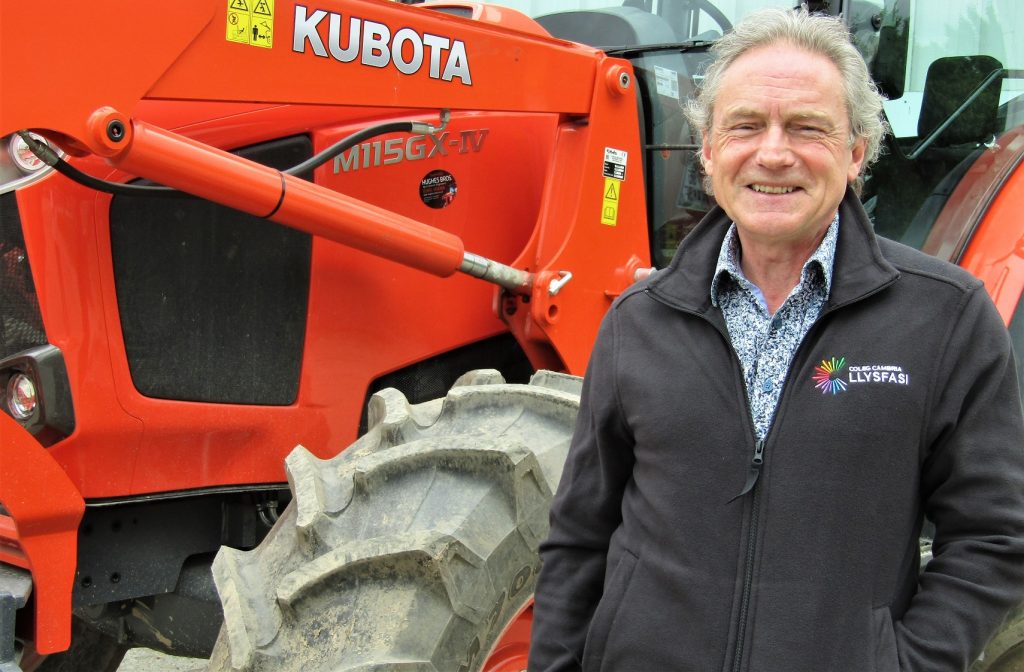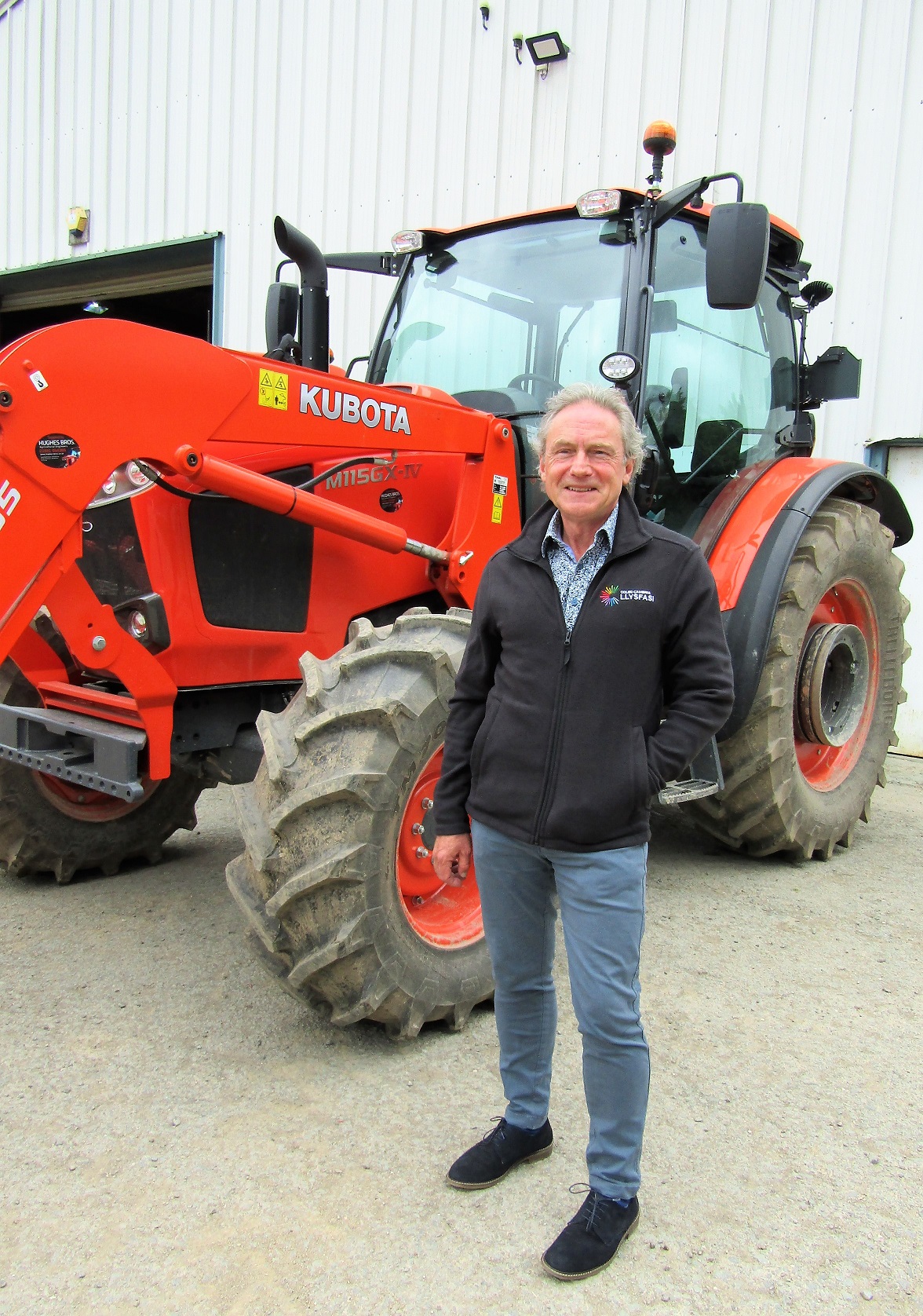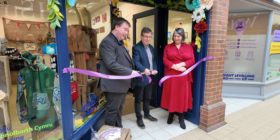£15m North Wales ‘net zero farming centre’ will play key role in helping UK meet carbon neutral targets

THE development of a £15m ‘net zero farming centre’ in North Wales will play a key role in helping the UK meet its carbon neutral targets.
As preparations continue for the revolutionary centre of excellence at Coleg Cambria Llysfasi, near Ruthin in Denbighshire, project manager George Fisher has been busy garnering the support, opinions and concerns of farmers and relevant stakeholders across the region.
Since joining the college earlier this year – in partnership with North Wales Economic Ambition Board, drivers of the Growth Deal which includes the net zero farming centre as part of its Agri-food and Tourism programme – George has connected with farmers regionally and beyond to offer support and information that will help them get ready for the watershed transition.
The UK Government has set 2050 as its net zero deadline; the Welsh Government believes it can be done sooner and the National Farmers Union (NFU) is aiming for 2040 by encouraging landowners and managers to improve productive efficiency and land management, boost renewable energy on-farm and the look at options for capturing carbon.
George agrees this will make a difference, and that Llysfasi will prove decisive in helping to educate, demonstrate and innovate for future generations.
“There is a hunger there to get this done and to make the changes needed to meet these targets to improve efficiency, which will in turn improve profits and business models,” he said.
“The main challenge I have is the sheer complexity and number of different organisations and individuals to tap into, but already we have had very positive feedback and are making progress.
“The plan is to put a spade in the ground next year and be ready to go in September 2023, and we are very much on course for that. Discussions and relationships will continue to be forged throughout 2021 – hopefully in person as Covid restrictions ease – and we can make even more headway throughout 2022.”
The 15-year initiative will pioneer new technologies in digital and precision agriculture and renewable energy and will host a suite of demonstration facilities where farmers and land managers can learn best practice and see for themselves how they can be applied.
The hub will aim to improve the uptake of renewable energy initiatives with a target of 40 projects over five years, along with improved knowledge transfer to 500 businesses and communities.

It will provide opportunities for commercial testing of market-ready technology whilst delivering a financial injection and further diversification of the region’s rural economy.
With decades of international experience in commerce, product development and consultancy within the education and agriculture sectors, George is delighted to be a part of the team delivering the ground-breaking project having seen so many technological advances over the years.
“When I began my career there were more than 55,000 dairy farms in Great Britain, now there are less than 10,000,” he said.
“This is an arena that must change to survive and making efficiency improvements will play a major role in that. The farming sector must be congratulated for the enormous strides it has already taken to reduce inputs and improve efficiency, and that has to continue. The net zero farming centre will support them.
“It’s about striking a balance between how much carbon a farm emits and how much it captures to get to net zero, and by adapting and learning from new systems and methods long-term we can make significant inroads.
“From building carbon in soils, woodlands and hedgerows, nature is the solution in partnership with digital technology, which is very exciting and has captured the imagination.

“We have held virtual workshops and surveyed many people across the sector and there is already a huge amount of goodwill out there so I’m confident this will have a very positive impact.”
Recent figures revealed emissions from UK farms amount to 45.6 million tonnes of carbon dioxide (CO2e) equivalent a year – about one tenth of UK greenhouse gas emissions. In stark contrast to the rest of the economy only 10% of this is CO2, while around 40% is nitrous dioxide (N2O) and 50% is methane (CH4). In Wales, farming and land management accounts for 14% of national emissions.
Robyn Lovelock, Programme Manager for the Portfolio Office delivering projects for the North Wales Growth Deal, said there is an “urgent need” to address these statistics.
“Opportunities presented by precision agriculture techniques at the net zero farm could help,” she added.
“It’s going to become increasingly important for farmers – if they wish to remain competitive – to be able to show how their carbon footprint is reducing, so technologies to both assess and reduce emissions are going to become ever more needed.
“The good news is that new jobs will be created in the agricultural sector, with growing specialisms in low carbon farming, and there is so much expertise already in the region to build on.
“We want to be ambitious in this area and help North Wales prepare for this low carbon future, so we need to be providing those opportunities now for those skills, offering training and jobs, through projects such as Llysfasi.”






